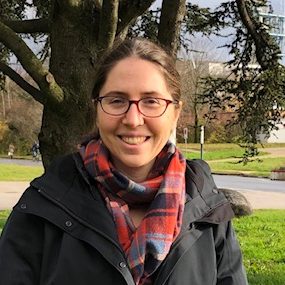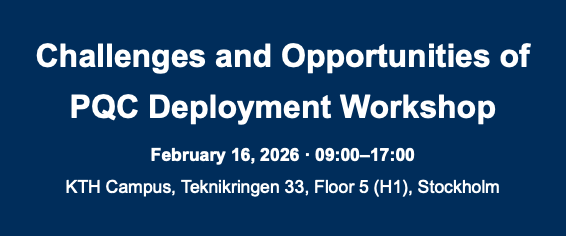Date and time: 25 January 2024, 14:00 – 15:00 CET
Speaker: Martina Scolamiero, KTH
Title: Learning with Topological Data Analysis features
Where: Digital Futures hub, Osquars Backe 5, floor 2 at KTH main campus
Directions: https://www.digitalfutures.kth.se/contact/how-to-get-here/
OR
Zoom: https://kth-se.zoom.us/j/69560887455
Moderator/administrator: Alexandre Proutiere, alepro@kth.se
Watch the recorded presentation:
Abstract: In Topological Data Analysis, the method of Persistent Homology has been widely used to extract geometric features of data. Such features are then typically used in data analysis for clustering, visualisation and more recently also for supervised learning. In this talk Scolamiero will describe how the TDA group at KTH has been defining robust (Lipschitz continuous) features based on Persistent Homology [1],[2]. The starting point of such construction are distances to compare Persistent Homology summaries of data. Special emphasis will be on families of parametrised features and how they can be used in supervised learning. Finally the robustness property of topological features will be discussed.

Bio: Martina Scolamiero is an Assistant Professor in Mathematics with specialization in Geometry and Mathematical Statistics in Artificial Intelligence. Her research is in Applied and Computational Topology. She mainly works on defining topological invariants which are suitable for data analysis, understanding their statistical properties and their applicability in Machine Learning. Scolamiero also has an interest in applications of topological methods to Neuroscience and Psychiatry. Her research is financed by WASP, the Swedish Research Council and the Göran Gustafsson Foundation.
[1] J. Agerberg, R. Ramanujam, M. Scolamiero and W. Chachólski, Supervised learning using homology stable rank kernels. (2021) Frontiers in Applied Mathematics and Statistics.
[2] J. Agerberg, A. Guidolin, I. Ren and M. Scolamiero. Algebraic Wasserstein distances and stable homological invariants of data.(2023) arXiv: 2301.06484




